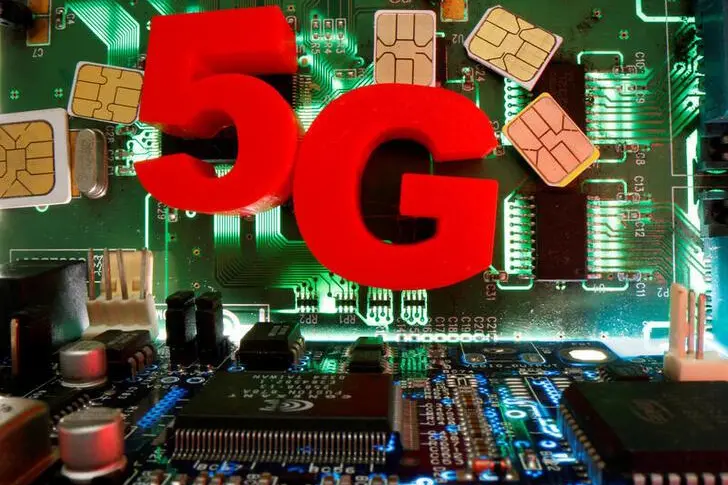PHOTO
There may be good reasons to confront, or at least be cautious about, China’s intentions in its drive to become a leader in the 5G world, and critical of the methods it is applying to achieve this; and there are most definitely legitimate concerns about China’s human rights record and its abysmal behaviour toward the people of Hong Kong in violation of the 1984 Sino–British Joint Declaration that set the terms of British withdrawal from the colony and its return to China in 1997.
Nevertheless, the timing of Britain’s actions, under American duress, raises concerns that this is bringing the world a step closer to a new Cold War, in which the UK is not necessarily asserting its own position and interests, let alone values, but is being dragged into for fear of the Trump administration’s Sinophobic rage and to guard transatlantic relations. Its pursuit of the Brexit folly has exposed the UK’s vulnerability to US pressure and to Chinese retaliatory measures.
According to the Observer newspaper, the UK government privately admitted to Huawei’s representatives that it was ending their company’s involvement in Britain’s 5G network not only because of genuine security concerns, but to a large extent for “geopolitical” reasons, or in other words, massive pressure by President Trump. To increase that pressure, a delegation of senior White House officials flew to London to present the government with allegedly fresh technical evidence to back their claims of security risks posed by Huawei and to demand a full British 5G ban on Huawei.
What gives credibility to assertions of American pressure rather than any reassessment of the risk of Huawei conducting wholesale surveillance in the UK is that as recently as late January the government decided to allow Huawei’s involvement in the super-fast 5G network, with certain exclusions and limitations regarding core functions, as was recommended by the UK’s National Cyber Security Centre.
The importance of cyber security in an age when so much activity is conducted in and depends on cyberspace is in no doubt, as is ensuring that all sensitive information regarding national security and the private lives of individuals is guarded. But the commercial world as well as governments have long been hacking into each other’s networks and invading the privacy of internet users, and China is far from being the only culprit.
It is the timing, the haste and the sudden change of heart that makes one skeptical about the motives of the British government and its readiness to risk the wrath of Beijing, which will probably come in the form of punitive economic measures. After all, the UK is aligning itself late with the other Five Eyes intelligence-sharing nations in banning Huawei from its 5G network.
Equally, the current phase of Beijing’s attack on Hong Kong’s “one country two systems” agreement began more than a year ago, when a bill was introduced in June 2019 allowing extradition to mainland China. Beijing’s response to the protests against the bill left no doubt that this was another step toward abolishing any exceptionalism for the former British colony and curtailing the freedoms of the people of Hong Kong while using excessive force against protesters and locking up their leaders. But neither the UK nor the US did much to support the rights of the people of Hong Kong until it suited their wider interest of confronting China.
On both counts Boris Johnson’s government could have developed its own specific and targeted policies while distancing itself from Trump’s all-out confrontation with China, which is more about the president’s biases, prejudices and nationalist populism that threaten to drag the US, its allies and the rest of world into a new Cold War in which there are unlikely to be any winners.
Unlike the previous Cold War with its deep ideological undercurrents and nuclear cloud hanging above it, the present one is becoming an aggressive contest with no clear objectives, fueled by bellicose demagoguery originating from the Trump administration’s inclination to blame China for all the world’s ills, including the coronavirus pandemic, described by the US president as the “Chinese virus” while propagating the “theory” that it was started in a Chinese laboratory, despite his own intelligence agencies not supporting this accusation. In the Trump mindset, at a time when almost everything is going horribly wrong for him and with less than four months before the presidential elections, aggravating relations with China is his wild card aimed at rallying the nationalist base and creating a false sense of him as a world leader containing China’s hegemonic aspirations, while leaning on allies to pursue similar policies.
Instead of employing a mix of assertiveness, pragmatism and caution, the US is leading the march, now with the support of the UK, toward a full-on clash with Beijing, while being inconsistent on both trade and human rights issues. Both countries should ask themselves why they haven’t built the capacity to preclude any reliance on Huawei to construct their 5G networks, and by such neglect exposed their technological vulnerability and inability to advance their democratic values.
China’s treatment of Hong Kong, Tibet or the Uighur people deserves condemnation and a powerful response, and protecting intellectual property and network security are issues of national interest. But what we are witnessing right now is an escalation of hostilities with a resurgent and confident China, rather than any principled position on human rights, or pragmatic one on trade relations being taken. It is a lose-lose scenario which is likely to serve only Trump’s electioneering needs, and in which the UK is proving itself to be no more than a weak tag-along.
- Yossi Mekelberg is professor of international relations at Regent’s University London, where he is head of the International Relations and Social Sciences Program. He is also an associate fellow of the MENA Program at Chatham House. He is a regular contributor to the international written and electronic media. Twitter: @YMekelberg
Copyright: Arab News © 2020 All rights reserved. Provided by SyndiGate Media Inc. (Syndigate.info).





















